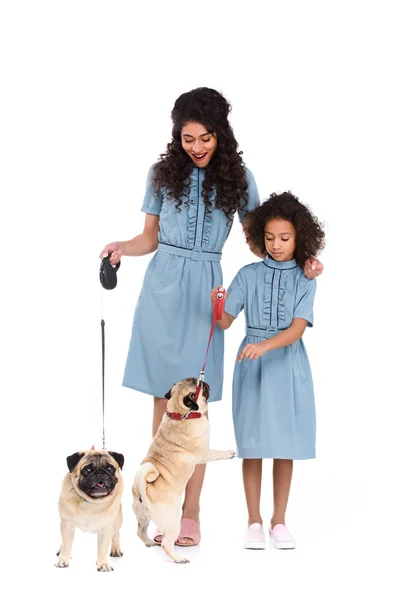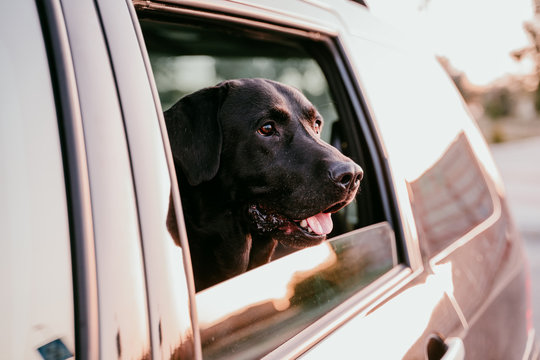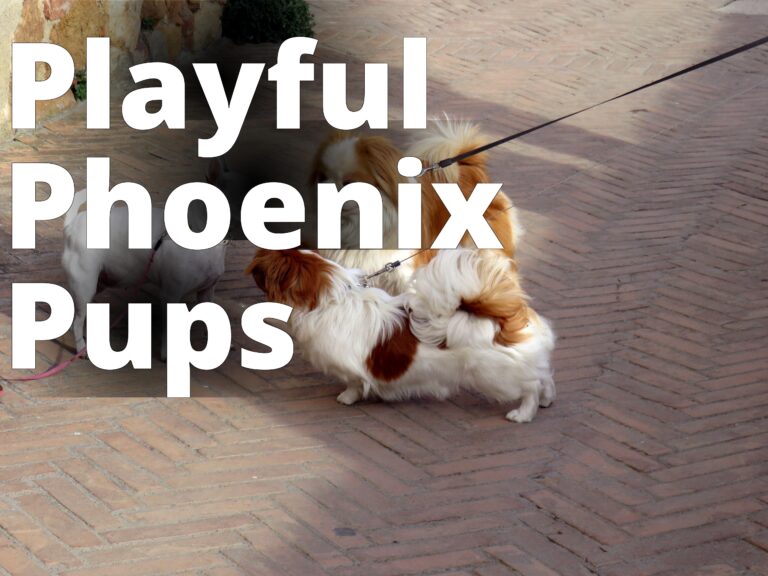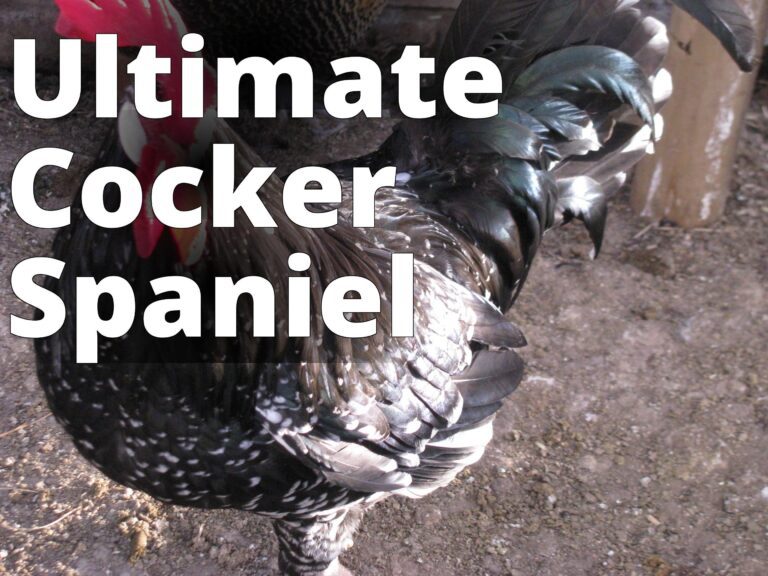Cuddly Puppies: A Powerful Bond Beyond Humans
We all know how cute and cuddly puppies can be, but did you know that they’re not just for humans anymore? That’s right, there are now specially trained cuddly puppies that are helping people in all sorts of ways! But how did this all start?

Cuddly Puppies: The New Best Friend For Your Dog
Dogs have been man’s best friend for centuries, but lately, they’ve been joined by another furry friend – the cuddly puppy. Cuddly puppies are becoming increasingly popular as the new best friend for dogs. They’re not just for humans anymore – cuddly puppies make great pets for dogs too!
There are a number of reasons why cuddly puppies are so popular. For one, they’re incredibly cute. They have big eyes and ears that are just the right size, and their fur is soft and cuddly. Plus, they’re very social animals and love to be around people and other dogs.
If you’re thinking of getting a cuddly puppy, be sure to do your research first. There are a lot of great options out there, and you don’t want to get a pup that’s going to be difficult to care for. Also, be sure to get your pup vaccinated and neutered, as these are important measures for both your safety and that of your pup.

Why Puppies Make Great Companions For Dogs
Puppies are some of the most adorable dogs around, and they make great companions for dogs of all ages. Dogs love being around puppies, and they often develop a strong bond with them. This is because puppies tend to be playful and have an unbridled energy that excites dogs. Puppies also instinctively understand dog behavior, so they can RELATE to your dog better than any other type of pet.
While there are many wonderful types of pets out there, no type of pet comes close to the relationship you can form with a puppy. If you think puppies might make a good addition to your family, consider adopting one from an animal shelter or rescue group instead of buying one from a breeder. There’s nothing like getting to know a puppy in person before deciding whether or not he’s right for you!
![]()
How To Choose The Right Puppy For Your Dog
The process of choosing the perfect puppy for your dog can be overwhelming, but it’s important to remember that there are a variety of different types and sizes of puppies out there. To make the best decision for your furry friend, here are a few tips to follow:
-
Browse through local breeders or shelters before making your purchase. It’s important to find a reputable breeder who will take care of your pup during its lifetime and has healthy dogs available. Avoid buying from pet stores or dealers, as these animals may have been in poor conditions and put into breeding prematurely.
-
Check out the pup’s parents – You want to make sure you’re getting a purebred dog with genetics that lines up with what you’re looking for. If possible, visit the family homes of both parents and get a sense of their personality (both good and bad). This will help you develop an idea about what type of dog might suit your needs better overall.
-
Consider temperament – A well-tempered puppy is crucial if you want an easygoing companion; unfortunately, not all ADHD puppies are going to be great pets due to their energy level later in life. Make sure to researchTemperament testing services in order to get some clues about which pup might fit into your lifestyle best.
The Benefits Of Having A Puppy Around
The Unconditional Love Of A Puppy
Puppies are known for their unconditional love and affection. They will always be there for you, no matter what. Puppies are also known for being cuddly and playful. They will make you laugh and feel happy. Puppies also make great pets for people who have allergies or other sensitivities to dogs.
The Joy Of Seeing Them Grow
One of the best things about having a puppy around is watching them grow and learn new things. They start with simple tasks like taking a nap, learning to sit and stay, biting inhibition, following commands, and basic safety skills such as not jumping up on people. As they grow older, puppies will gain more complex skills including house training, potty training, learning obedience commands and so much more. Puppies are also social creatures who love spending time with people; therefore being around someone who loves them unconditionally helps develop their sense of nurturance or dependency which can be beneficial in adulthood.
The Companionship They Provide
Puppies are often associated with being cuddly, however this doesn’t just apply to dogs. In fact, a study published in the journal Frontiers in Psychology found that living with a pet rabbit increased life satisfaction and physical health markers among participants. The rabbits served as companionship and helped reduce loneliness and psychological stress.
While some people may be hesitant to adopt a puppy for fear of having too much household responsibilities, rabbits make great house pets because they’re easy to care for and don’t require special attention beyond providing food and water. Plus, their cute little faces will surely make everyone smile!
The Fun Of Training Them
Puppies are adorable and make great companions, but they’re not just for humans anymore. In fact, there are many benefits to having a puppy around, whether you’re training them or just having fun. Here are five of the most important:
-
Puppies Are Fun. Puppies are always up for a good time, whether it’s playing fetch or cuddling on the couch. They’re also great at teaching children how to have fun and be responsible.
-
Puppies Are Good For Your Relationship. Puppies bring out the best in people and can help strengthen relationships. They’re also great at teaching children how to be patient and take care of things.
-
Puppies Are Good For Your Mental Health. Puppies can help reduce stress and anxiety, and they’re also great for building self-confidence.
-
Puppies Are Good For Your Physical Health. Puppies are great for your physical health because they’re good for your heart and lungs. They also help reduce the risk of developing diseases in later life.
-
Puppies Are Good For Your Sense Of Humor. Puppies are always up for a good time, which means they’re great for your sense of humor. They also make great companions when you need a break from reality.

Puppy Training Tips For A Well-Behaved Dog
Start Training Early
The earlier you start your dog’s training, the better. Puppy obedience training should be started as soon as your new puppy is eight weeks old and has had some introductory commands such as sit, stay, come, and down. It’s also a good idea to socialize your puppy regularly with people and other animals in an environment where he or she is comfortable. That way when it comes time for basic obedience commands (sit, stay, come), your puppy will already have learned some of the basics from interacting with people and other pets in everyday life.
Be Consistent With Commands
Training a dog is one of the most important things you can do for it. Not only are proper training techniques essential for preventing behavioral issues in your pup, but they also provide him or her with the skills necessary to become a well-behaved companion. One of the most effective ways to teach your dog what you want them to do is through use of consistent commands. Make sure that you are always using the same words and expressions when giving commands, and be sure to be consistent with them. If you vary your tone or approach, your dog may not understand what it means when you say “sit” or “come”.
Use Positive Reinforcement
Puppy training can be a lot of work, but with the right techniques and positive reinforcement, it can be a fun process that leads to a well-behaved dog. One of the most important things to remember is to keep your puppy on a schedule. By teaching them simple routines such as going outside when they are supposed to (assuming they have been house-trained), you will help them develop good habits and save you from having to constantly correct them. Additionally, reward your pup for good behaviour in order not only teach them what is expected of them, but also encourage them to repeat the actions in the future. Along these same lines, avoid verbal punishments like “bad dog” or shouting; this type of punishment only makes your puppy feel worse and may discourage them from trying to do the right thing in the future.
Reward Good Behavior
One of the best ways to train a dog is to provide positive reinforcement. This means rewarding your dog when he or she behaves in a desirable way. There are many different ways to do this, and it’s important to find what works best for your dog. Some common rewards include treats, petting, verbal praise, and games. It’s important to find something your dog enjoys, so you can keep him or her motivated to behave.
How To socialize Your Puppy With Other Dogs
Start With Puppy Socialization Classes
Puppy socialization classes are a great way to get your puppy used to being around other dogs. The classes will teach your puppy how to behave around other dogs, and help you to get to know your puppy’s personality. Puppy socialization classes are also a great way to meet other dog owners and learn about the different types of dogs that are out there.
Get Your Puppy Used To Being Around Other Dogs
The best way to get your puppy used to being around other dogs is by playing with them in an environment where they feel comfortable. This means exposing them gradually to different types of dogs while always providing positive reinforcement. You can also take your puppy for walks, letting them play fetch and/or explore a large area where there are lots of other dogs around.
Take Your Puppy To The Dog Park
One of the best ways to socialize your puppy is by taking him or her to the dog park. This will allow the pup to meet a wide variety of different dog breeds and personalities, as well as learn some basic obedience skills. Plus, you’ll be able to see how much fun he (or she!) has playing with other dogs.
Have Regular Playdates With Other Dogs
Studies have shown that socializing your pup with other dogs is essential for their development. A puppy during the critical period ofsocialization learns to trust people and animals, fine-tune her observational skills and establish positive relationships through play. Puppies who fail to initiate or get along with other puppies often display signs of anxiety and insecurity when adults try to introduce them to new people or animals. It’s important for you as the primary caregiver to ensure that all your pup’s interactions are enriching, not traumatic.
One way to socialize your pup is by having regular playdates with other dogs. This will help her develop a healthy social life while also teaching her how to properly interact with others, both human and animal. When inviting a new dog over, it’s important to make sure they’re both aware of���a proper introduction protocol. Start by getting your pup excited about the visit by playing positive reinforcement games such as “drop it” and “leave it.” Once the other dog arrives, have them meet in an area where there is plenty of room for all of them to run and play. If things start to get out of hand, try redirecting the puppies with loud noises or stern commands. Failure to properly socialize your pup can lead to problems down the road when she interacts with other animals or people.
The Do’s And Don’ts Of Puppy care
The Do’s of Puppy Care
There are a few things that you should always do when taking care of a puppy, regardless of whether you are adopting or buying one from a breeder. These include providing plenty of fresh water and food, exercising the puppy regularly, and providing loving attention. However, there are also a few things that you should avoid doing if you want to keep your puppy healthy and happy. Here are the five do’s and don’ts of puppy care:
Do provide plenty of fresh water and food: Puppies need plenty of both to stay hydrated and nourished. Make sure to give them enough water even if they seem full; they may not be drinking enough because they are so excited. And make sure their food is fresh; an old, stale food will not be as beneficial to them.
Do exercise the puppy regularly: A puppy’s body and mind need exercise to stay healthy. Take them for a walk, play fetch, or run around the block every day. If you can, try to schedule regular playtime in during the morning and evening so that they have plenty of opportunity to burn off energy during the day.
Do provide loving attention: Puppies need your attention just as much as they need food and water. They will feel loved and secure when you are around them, and this will help them to develop a healthy relationship with you in the future.
Do avoid doing these things if you want your puppy to be healthy:
Do not leave the puppy alone for long periods of time: A puppy is not a full-grown dog and needs your attention just as much as a full-grown dog does. If you have to leave the house for an extended period of time, make sure to leave the puppy with someone who can care for them properly.
Do not discipline the puppy harshly: Puppies are very sensitive and emotional creatures, and they will respond negatively to any type of punishment. Be gentle and consistent when disciplining your puppy; using a light touch will usually work best.
Do not give the puppy too much attention: Puppies need their own space to play and explore, and they will become overwhelmed if you give them too much attention. Let them play with their toys and other objects on their own for a little bit each day.
The Don’ts of Puppy Care
There are a few things that you should never do when caring for a puppy. These include:
-
Never leave your puppy alone.
-
Never leave your puppy unattended in a room where there are potential dangers.
-
Never leave your puppy outside without supervision.
-
Never hit or discipline your puppy in any way.
Caring for Your New Puppy
The biggest decision you’ll make when fostering or adopting a puppy is whether to crate train them. The benefits of crate training are clear: it can reduce the likelihood of housebreaking problems, teach puppies good behaviour habits and prepare them for basic obedience training. Crate training should start as soon as your pup is old enough to be weaned and continue until they’re eight weeks old or older, when they should be able to go outside on a leash. For young puppies, a baby gate can keep them in their crate while you’re away but allow them immediate access to the family room.
Don’t use punishment to train your puppy – bribery is often more effective. Treats (usually small pieces of food) will hold much more value if they’re rare and important. Start by giving your pup a few treats when they do what you want them to but gradually reduce the number of treats until your puppy learns the behaviour on their own.
Another key element of puppy care is providing plenty of exercise. If you can’t provide enough physical activity, try setting up a playpen or baby gate so your pup has some place to run but doesn’t escape from the house. And be consistent – whether you’re out at work or running errands, take your dog with you. Consistency is key in training and developing good habits.
And finally, don’t forget to praise and reward good behaviour – puppies love attention, so show them that their efforts are appreciated with lots of gentle words and actions (both when they’re behaving and when they’re not).
How to Properly care for a Puppy
The newest member of your family is a bundle of joy and treasure, but with the added responsibility comes a lot of new things to learn. One big lesson is proper puppy care. Here are some do’s and don’ts in minding your furry friend:
Do provide adequate amounts of fresh water, food and chew toys daily.
Don’t allow your puppy to sleep in wet areas or on dirty surfaces. Puppies can get pneumonia from staying wet for too long or from coming into contact with dirt and other germs.
Do teach puppies good leash manners from an early age by attaching them to a sturdy object when you’re out walking them so they can’t wander off.
Do be consistent with training so that puppy learns quickly and won’t associate negative behaviors with happening.
Don’t get discouraged if your puppy cries or barks a lot when they’re teething and want to chew on everything. This is only normal behavior.
If you’re looking for a new best friend for your furry friend, look no further than a cuddly puppy. Puppies make great companions for dogs and can provide endless hours of fun and enjoyment. When choosing a puppy, be sure to select one that is the right size, age, and energy level for your dog. With proper care and training, your puppy will quickly become a beloved member of the family.




Leave a Reply